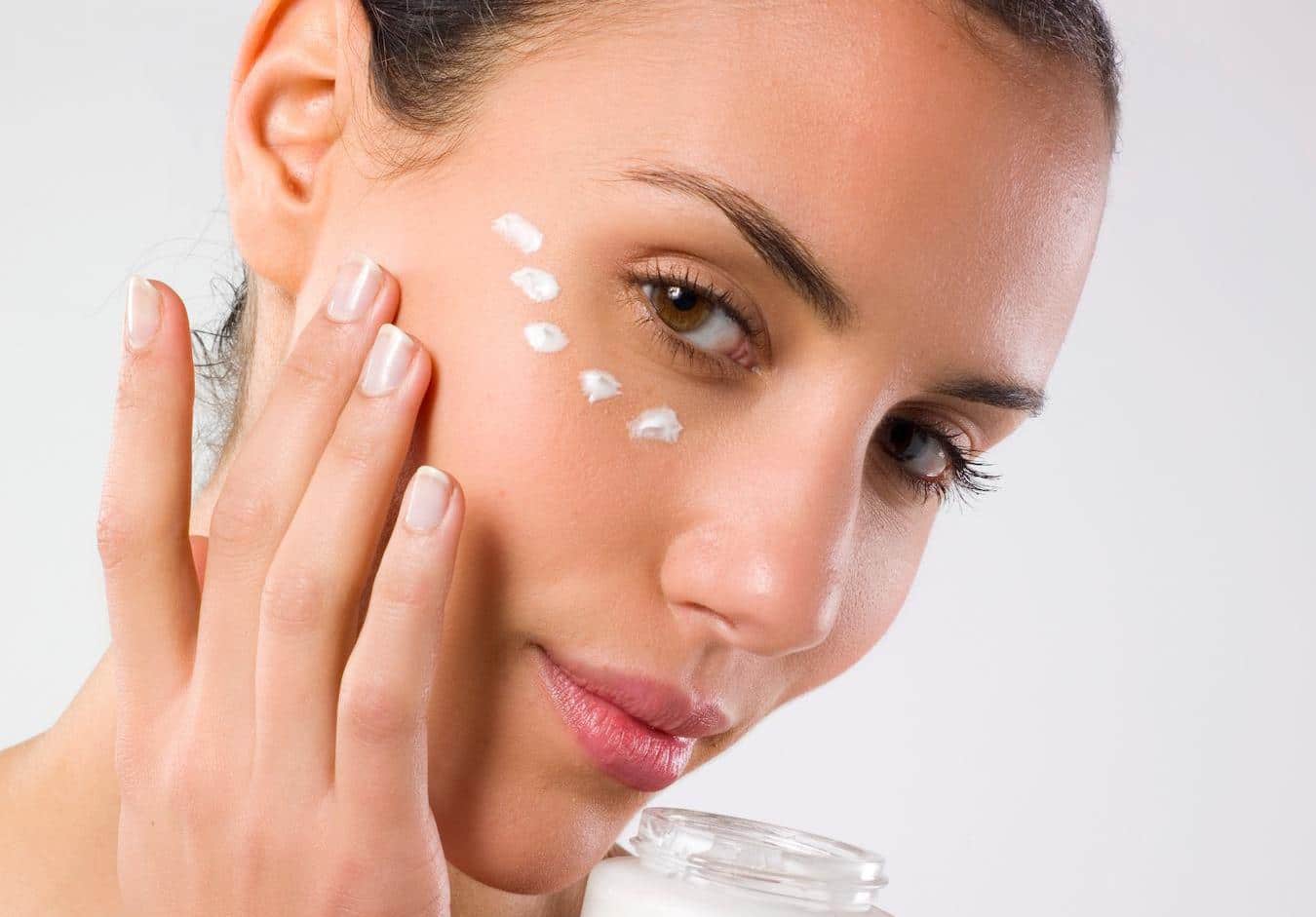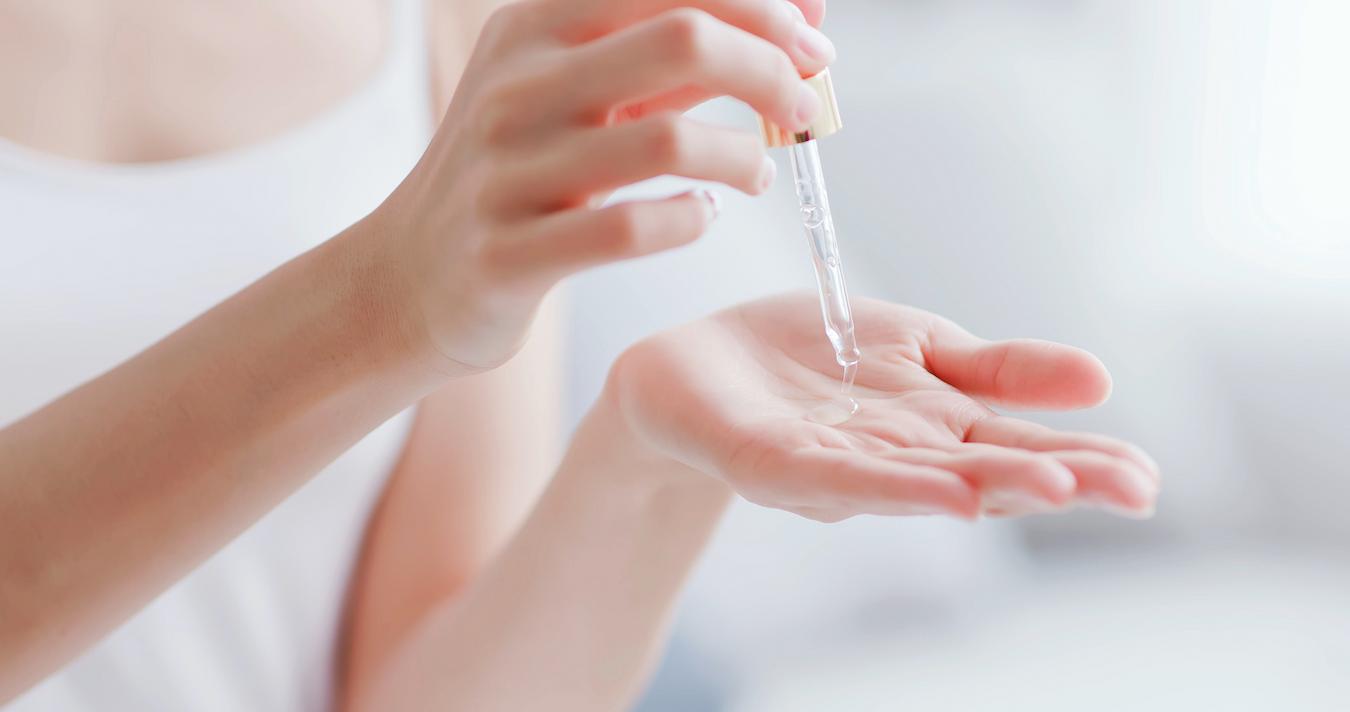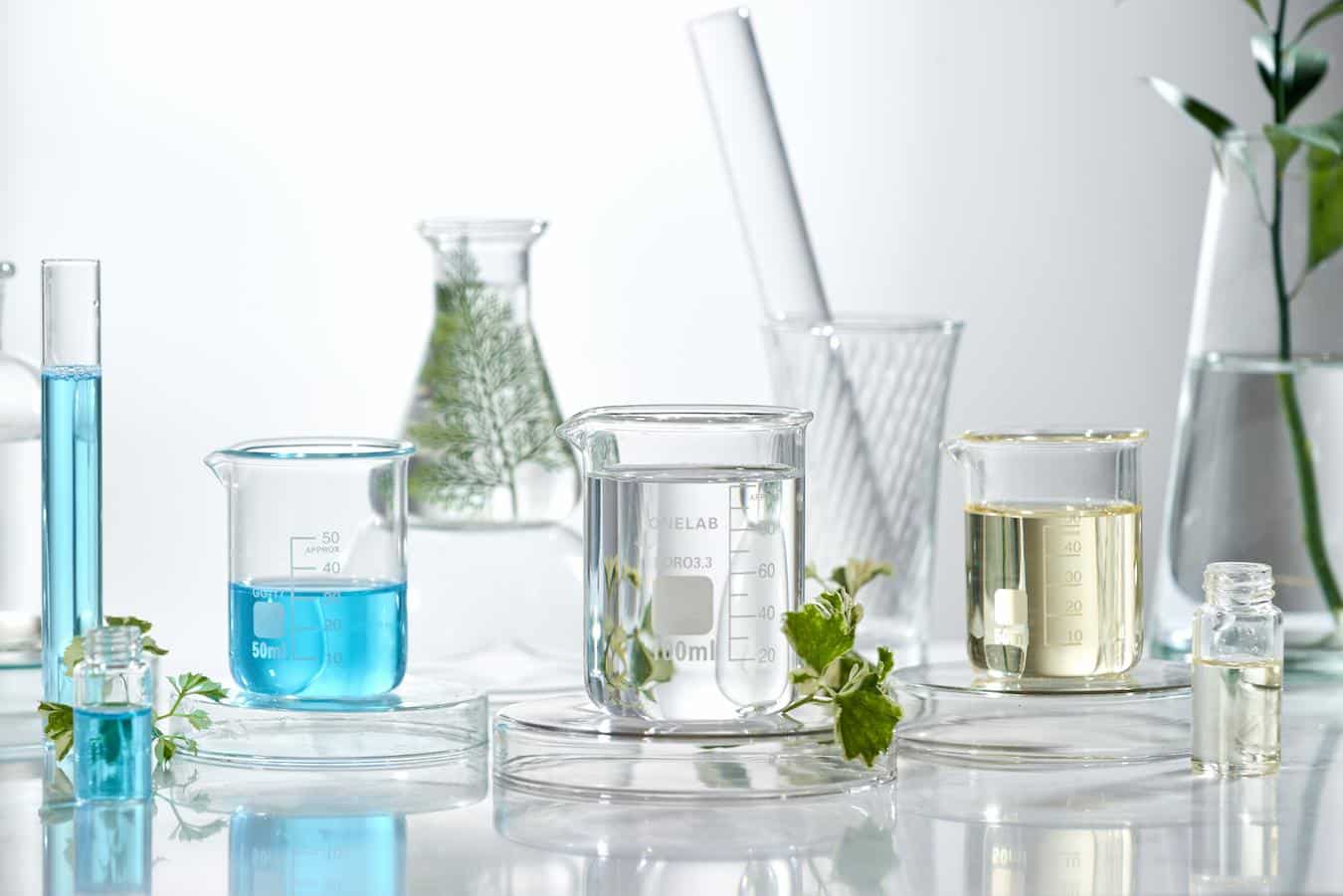Can I Use Glycolic Acid In My Skincare Routine Every Day?

Glycolic acid is a popular skincare ingredient for many reasons. But to properly incorporate glycolic acid into your skincare routine for maximum benefits, it’s essential to understand how to use it.
Key Takeaways
Here are the key takeaways at a glance. Keep reading to learn more about giving your skin the treatment it deserves!
- Glycolic acid is an alpha hydroxy acid (AHA) that can dissolve our skin’s upper layer
- Because it is a chemical exfoliant, it can remove the dull surface layer of our skin without harsh rubbing
- Glycolic acid also has anti-aging and antibacterial properties
- This iconic skincare ingredient is also very effective in treating acne-prone skin
- At lower concentrations, it is safe to use daily. Higher concentrations should be used sparingly and correctly to avoid damaging your skin
The skincare world is full of various products that many people use to treat their skin. We usually design our skincare routine based on our individual and particular skin type. After all, many products are precisely formulated to target specific skin concerns.
Discovering the right product for our skin can make the difference between dull, dry skin and a glowing, radiant complexion. Obtaining the skin of our dreams is beneficial not only for our physical health but for our mental well-being.
Glycolic acid is one of the most powerful and effective skincare ingredients in the beauty world. And people have been reaping the benefits of this chemical exfoliant for many years.
But what exactly is this magical ingredient, and how should we use it?
See Related: 8 Signs You Probably Have Sensitive Skin
What Is Glycolic Acid?
We all have a unique skin type that makes us who we are. Over time, our skin grows alongside our life experiences. Sometimes our complexion can become adorned with fine lines and wrinkles, or other times it can develop sun spots or dark circles.
The beautiful part of our skincare journey involves accepting the skin we have. And that’s also the key to cultivating our perfect skincare routine.
As we said, we all have a unique complexion. So it should then go without saying that we need to discover the individual skincare routine that is best for our individual skin type.
Following Your Unique Skincare Journey
For those with acne-prone skin or who struggle with hyperpigmentation, finding the right skincare products for your unique concerns can sometimes seem like a genuine challenge. Many skincare ingredients boast of being the cure for anything. But the most genuine of these claims comes from glycolic acid.
Glycolic acid is, simply put, a chemical exfoliant under the categorization of an alpha hydroxy acid, or AHA for short. This acid is well-renowned for its amazing ability to clear clogged pores, remove dead skin cells, and bring out a bright and radiant complexion.
The Power Of A Alpha Hydroxy Acid
The term “glycolic acid” itself can sound intimidating at first. After all, who wants to willingly put acid on their face?
But it’s much tamer and safer than it sounds. Glycolic acid is one of many alpha hydroxy acids out there which are simply skincare ingredients that are used for exfoliating the top layer of your skin. In fact, AHAs dissolve your skin’s upper layer and any dead skin cells residing there.
There are many other types of alpha hydroxy acids including salicylic acid and mandelic acid. But none is perhaps more well-known and widely used than glycolic acid.
One of the major distinguishing factors of glycolic acid that sets it apart from other alpha hydroxy acids is its molecular structure. Glycolic acid has the smallest molecular structure of all AHAs, allowing it to deeply penetrate our skin.

Why Is Glycolic Acid So Popular?
Glycolic acid is an incredible skincare product. As an AHA, it works to exfoliate and remove your skin’s upper layer. As we age, this top layer can become very dull, distressed, and haggard.
Luckily, exfoliation is an effective way to remove your skin’s dullness and replace it with a glowing radiance. Using glycolic acid is one of the best and most effective ways to complete this process as you don’t even need to scrub your skin to remove this layer.
Glycolic acid can seem like a solely synthetic ingredient at first mention. But it’s actually a naturally derived ingredient from sugar cane and is quite healthy for your skin when used correctly.
Glycolic acid is even gentle enough at times to treat sensitive skin.
The Properties Of Glycolic Acid
Now that we know what glycolic acid is, it’s time to discover the benefits of glycolic acid itself. After all, this can help us understand the best way to use it for our unique skin types.
Glycolic acid can be incorporated into your skincare routine in various ways. And you should take this into consideration depending on your skin type.
To understand the benefits of the wonderous glycolic acid, we first need to understand its properties. This will give us context for exactly how glycolic acid can work in our skin’s favor.
Glycolic Acid As An Exfoliator
Most notably, glycolic acid is a natural exfoliant. This is because it is an alpha hydroxy acid and can dissolve the outer layer of your skin without harsh rubbing or using physical exfoliation.
Unlike face scrubs, brushes, or other mechanical exfoliants, glycolic acid is a chemical exfoliant. Even in a low concentration, glycolic acid can effortlessly whisk away dead skin cells and other impurities to reveal smoother and younger skin underneath.
Chemical exfoliants can be very effective in combating breakouts or oiliness. But remember that too much glycolic acid can also lead to skin irritation or excessive dryness if not used properly.

Anti-Aging And Antibacterial Properties
Glycolic acid carries many powerful properties. In addition to being one of the most popular and well-known chemical exfoliants, it is also an effective anti-aging agent.
Over time, our aging skin can become a source of insecurity. Fine lines and wrinkles may sprinkle across our faces, but it’s essential to understand that while they will inevitably appear over time, they should instead be celebrated!
Either way, you can effectively use glycolic acid to treat the effects of time. This ingredient can even reduce damage from the sun’s UV rays and give back your skin the elasticity it has lost over the years. Glycolic acid also boosts your skin’s natural collagen production.
And lastly, glycolic acid has been shown to inhibit the growth of bacteria in your skin thanks to its antibacterial properties.
Bonus: 9 Tips For Applying Makeup To Mature Skin
The Benefits Of Glycolic Acid For Your Skin
Glycolic acid has many notable properties that all contribute to its respectable and well-renowned name. There are, in fact, many reasons why this ingredient is so hailed and famous in the skincare, beauty, and wellness world.
But this popularity can all come down to the benefits that glycolic acid products possess. From glycolic acid peels to acne creams, there are many ways to give your skin the glycolic acid treatment it deserves!
How Glycolic Acid Works Against Dead Skin Cells
Our skin changes over the years. The complexion we carried in our youth isn’t the same as what we have now. That’s because, over time, our skin’s natural processes change and alter.
After a while, our skin’s sebum production slows, meaning our skin becomes drier. While that can be beneficial for oily skin types, it can mean more trouble for sensitive skin or other skin types.
This also means that the dead skin cells our body regularly sheds won’t be able to fall away on their own as quickly. And this buildup of impurities can lead to a general dullness and uneven skin tone.
But when we use glycolic acid, its gentle exfoliation removes these dead cells to reveal brighter and smoother skin. In addition, glycolic acid stimulates our skin’s collagen production to improve elasticity, reduce the appearance of acne scars, and promote cell turnover.

Glycolic Acid For Acne-Prone Skin
Using glycolic acid in your skincare routine is excellent for rejuvenating haggard skin and evening skin texture. It is also a great ingredient for treating breakouts.
Because glycolic acid exfoliates your skin, it removes any impurities that may have built up in your pores. And because clogged pores commonly exacerbate acne, glycolic acid helps treat those pesky pimples.
Glycolic acid is excellent for treating acne and reducing the appearance of acne scars. Furthermore, using glycolic acid can brighten your complexion, reduce hyperpigmentation, and minimize sun damage.
Though glycolic acid can be used for many skin types, it can still possibly lead to irritation. With this in mind, consider your skin’s sensitivity and the concentration of glycolic acid before fully incorporating this ingredient into your skincare regimen.
You can also incorporate salicylic acid or hyaluronic acid into your skincare routine for some true acne-fighting power!
Can Glycolic Acid Be Used Daily?
There are many questions that people may have regarding glycolic acid. While this ingredient is widely used and trusted, many remain unsure as to how they can use it in their skincare routines.
The primary question is, “Can glycolic acid be used daily?” Unfortunately, the answer isn’t a simple “yes” or “no.”
That’s because we all have unique skin types and concerns, and one person’s beauty “holy grail” won’t be the same for someone else. The best way to determine how often to use glycolic acid can come down to the concentration of your glycolic acid product.
Products containing 1% to 2% glycolic acid are typically safe to use daily. Remember, if your skin becomes irritated or has an adverse reaction, either eliminate glycolic acid from your skincare routine or lower the frequency of use.
Skincare products with 10% glycolic acid can be used once or twice weekly. A glycolic acid mask with a 15% concentration should be left on only for a few minutes, then removed. Anything with a 20% concentration should only be applied by professionals, as we previously stated.
Incorporating Glycolic Acid Into Your Skincare Routine
Before adding glycolic acid to your skincare routine, it’s a good idea to understand what precautions you’ll need to take.
Keep in mind that glycolic acid can make your skin more sensitive to the sun. Therefore, ensure you wear SPF and use sun protection to avoid UV rays damaging your skin.
You can use glycolic acid during your AM or PM routine. Just ensure that you follow your glycolic acid application with a reliable water-based moisturizer and your favorite hyaluronic acid serum.
You can incorporate glycolic acid into your skincare routine typically as a toner or a face cleanser. However, don’t pair it with vitamin c or retinol as these ingredients don’t work well with glycolic acid.
A great way to utilize glycolic acid in your skincare routine is via a natural exfoliator. This unique formula allows your entire skincare regimen to be more effective and ensures you’ll be left with brighter and smoother skin.

As A Chemical Peel
Chemical peels can seem quite daunting at first. And that’s because they need to be used with care.
First, let’s go over what constitutes a chemical peel regarding glycolic acid. Most glycolic acid products use this ingredient in lower concentrations. Typically, this averages 10% or less.
But chemical peels utilize a much higher concentration of glycolic acid and can range from 20% to 50%. Because of this, the powerful yet delicate treatment of chemical peels should only be done by a qualified beautician or doctor at a clinic.
Professionals can use a neutralizing base after applying a glycolic acid peel to give your skin the tools it needs to be healthy and whole.
When it comes down to it, there are many different ways to use glycolic acid in your beauty routine. Find the way that works best for you, and your skin will thank you!
Keep Reading: Top 3 Causes Of Dehydrated Skin
—
For over 60 years, Viviane Woodard has represented “The Purity of Skincare”. We are the leading beauty brand for skin care products and promote the importance of good skin hydration. Follow us on Facebook, Instagram, Twitter, and Pinterest for skin care tips, product discounts, and more.

[…] Glycolic acid face washes can be used daily […]
[…] this is another glycolic acid product you can feel secure using everyday. In general, glycolic acid products are right for those with […]